Hi everyone, Gus here, apologies for missing the last issue. I was in Vancouver speaking at TED and completely underestimated the intensity. Fortunately, the talk went pretty well, and the feedback from the audience was great. Here's a description from the TED website:
Our friends at GoodGoodGood did a nice write up too. The whole thing has been a whirlwind, and the week at TED itself was extraordinary, full of mind-expanding magic. I can't speak highly enough about their team, who have been wonderful throughout. We promise we'll let you know as soon as the video is released! A big thank you to everyone who supported us along the way—you know who you are.
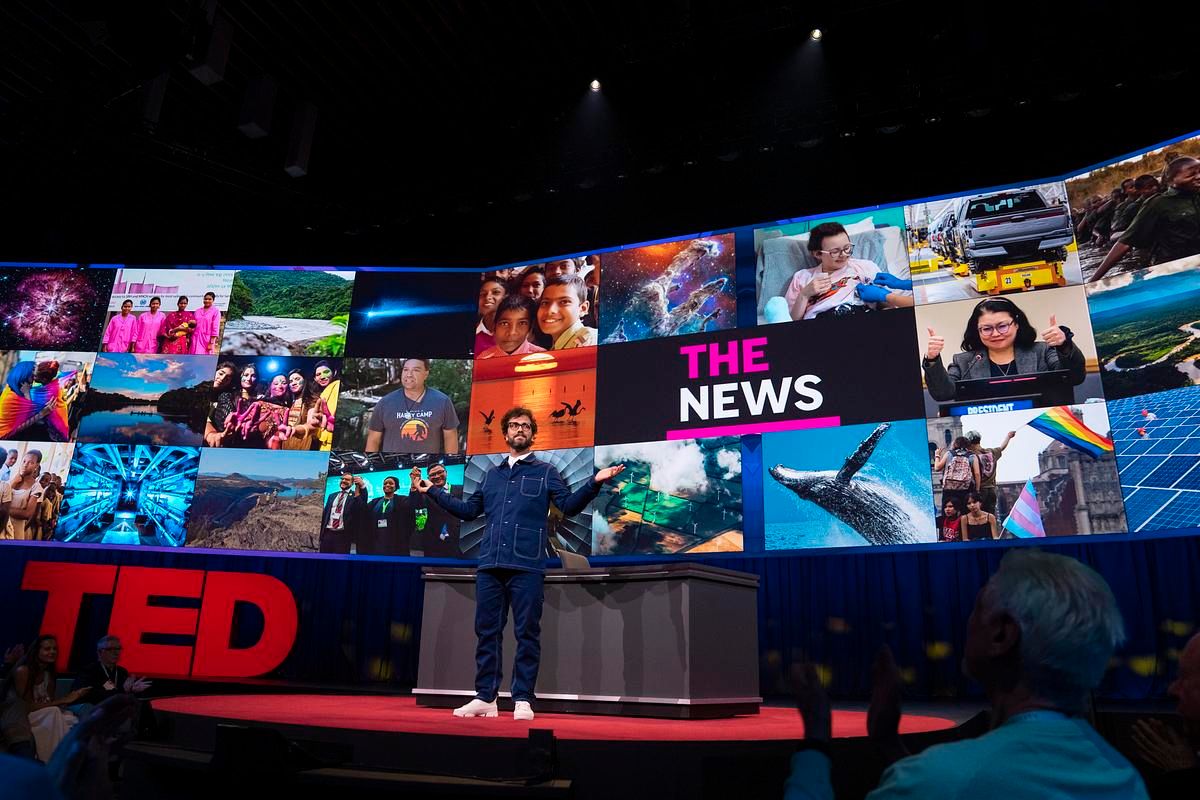
Also, a quick head's up to let you know that this edition finishes with our 98th Humankind story. We've got two more to go until 100. We're going to wrap the project up when we reach that milestone, and we will have some exciting news about what comes next, so please stay tuned. Without further ado, here's some...
Good news you probably didn't hear about
The most important good news story of the month, and arguably the year: Ghana and Nigeria (which has the highest number of malaria deaths in the world) have approved Oxford's highly effective R21 malaria vaccine for children under the age of three. The world's biggest vaccine maker says it will make 20 million doses available in the next two months. Reuters
We expect R21 to make a major impact on malaria mortality in children in the coming years, and in the longer term contribute to the overall final goal of malaria eradication and elimination.
Professor Adrian Hill, Director, Jenner Institute, University of Oxford
Yes, everything in America is awful, except for the fact that inequality is falling; unemployment is at its lowest since WW2 (and so is racial disparity in hiring); it's still the world’s richest, most productive and most innovative economy; poverty and uninsured rates are at their lowest levels in history; Millennials are back on track, and GenZ are blowing past other generations in saving for retirement.
Last year, an initiative called Deworm the World helped India, Pakistan, Kenya and Nigeria provide treatment to around 249 million children. Deworming is proven to improve the nutrition, cognition, school attendance, and long-term economic prospects of children. Evidence Action
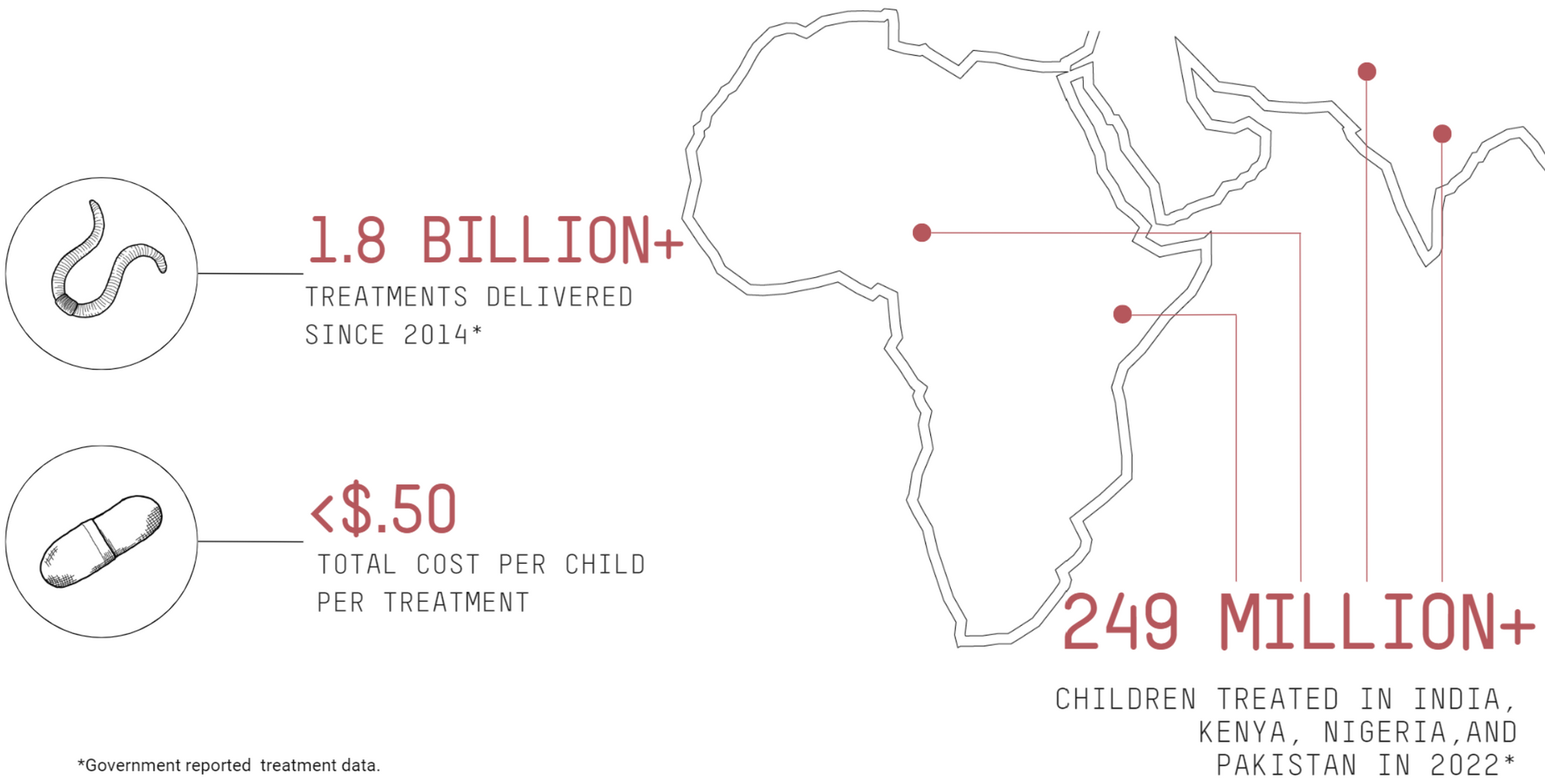
Between 2007 and 2021, the number of breast cancer survivors in Canada doubled. There are now two and a half times more survivors than there were during the last estimate in 2007. Around 370,000 women have been diagnosed with breast cancer during this period, and 85.9% had survived the disease as of 2022. Science Daily
Did you know that George W. Bush was responsible for the United States' most impactful foreign policy intervention of the 21st century? No, not that one. This year marks the 20th anniversary of PEPFAR, Bush’s HIV/AIDS program that turned the tide of the global epidemic, and has saved 25 million lives so far. NYT
In Ghana, the proportion of children under five suffering from stunting has fallen from 35.1% in 2003 to 17.1% in 2022. The change is thanks to better education of mothers, the promotion of exclusive breastfeeding, better food security and sanitation programs, and a general improvement in the socio-economic situation. Graphic
Electric trams are running again in Kyiv, electric scooters dot the sidewalks, and with curfew extended to midnight, the streets are bright and buzzing. The Kremlin’s campaign to break Ukraine by destroying its power grid failed. Not only did the grid survive, it was even able, in early March, to produce surplus energy for the first time in months. NYT
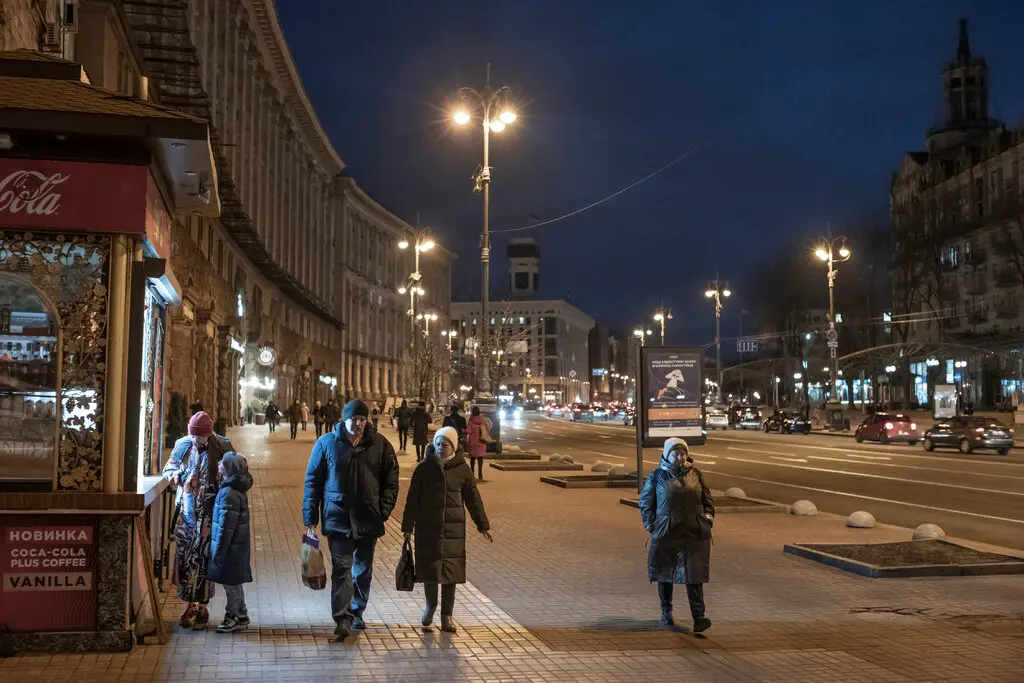
The Cook Islands has officially decriminalized homosexuality. The country, comprising 15 islands in the South Pacific, has rescinded a section of its Crimes Act of 1969. "We are so grateful for all the people and organizations throughout our community who have been working tirelessly to make this happen.” LGBTQ Nation
A new law giving women greater legal protection against gender-based violence has been passed in Uzbekistan, following a long campaign by women’s and human rights activists. “Today, Uzbekistan became the fifth country in Eastern Europe and Central Asia to criminalise domestic violence as a separate criminal offence.” Nadja
Poland has experienced the longest uninterrupted period of growth in European history. Real GDP has increased sixfold in three decades, and the country has a record-low unemployment rate of 3%, lower infant mortality than Canada, higher female life expectancy than the US, and less violent crime than the UK. Guardian
Ten US states have now passed "shield laws" to protect transgender rights and provide sanctuary. Together, these places are establishing themselves as safe havens and recognizing the connection between gender-affirming care and abortion rights as part of a united struggle for bodily autonomy. Erin Reed
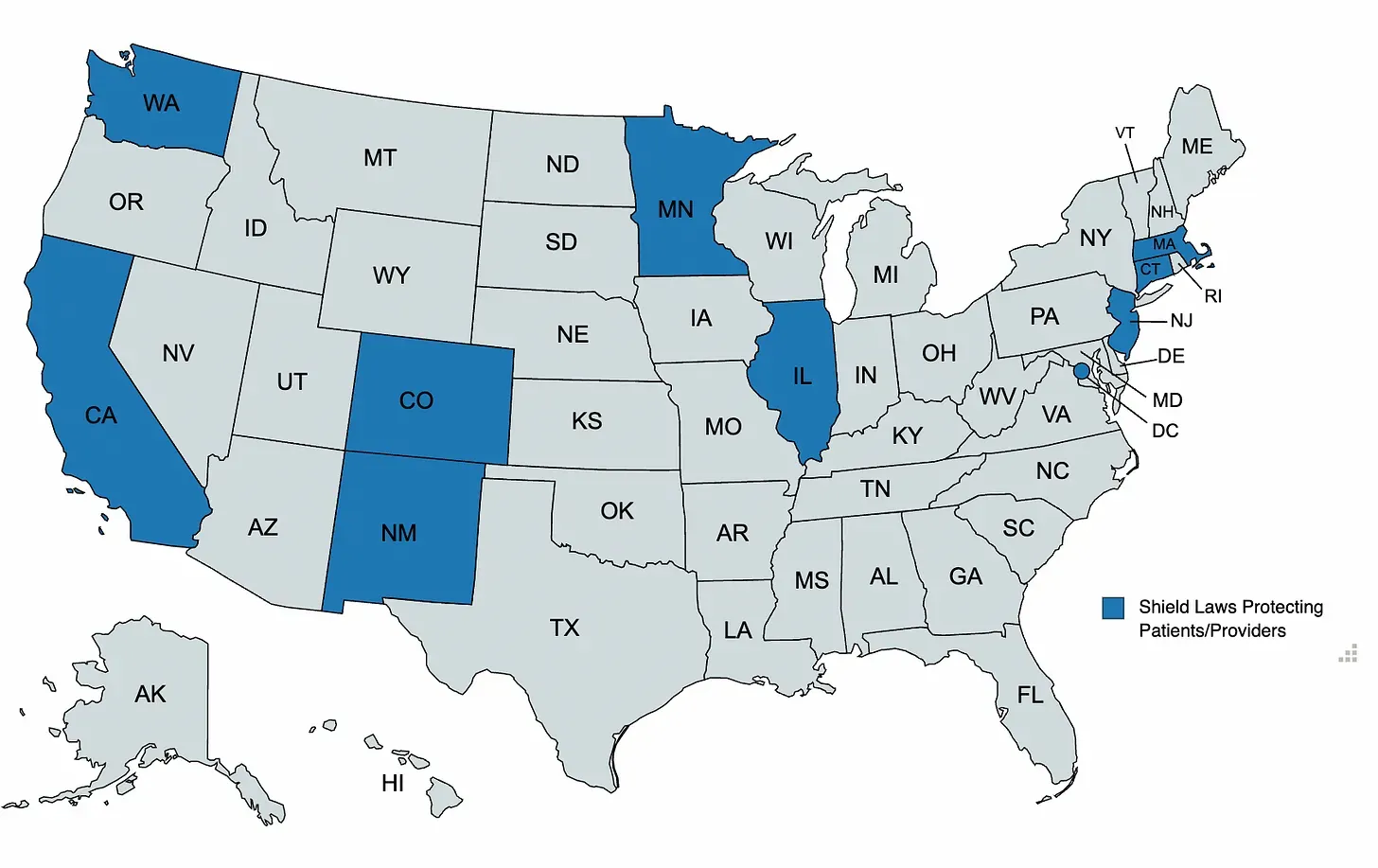
The only home we've ever known
Colombia has expanded three indigenous conservation areas, the Huitorá, Coropoyá, and Jericó Consaya Reserves, by a total of 279,777 acres. The move consolidates a crucial biological corridor between the Caquetá River and the Chiribiquete and La Paya, home to more than 3,000 plant and animal species—more species than are found in all of Germany. Andes Amazon Fund
In 2006, tiger populations in India reached a record low of 1,411. Since then, they've more than doubled, reaching 3,167 last year, according to the latest census. The resurgence of Indian tigers represents a triumph for conservationists and a ray of hope for other countries struggling to boost wildlife numbers. CNN
Togo begins its annual reforestation drive on 1st June, led by Environment Minister, Foli-Bazi Katari. The goal this year is to plant 14 million trees on 11,000 ha of land, improving on the 5.2 million planted on 8,256 ha of land in 2022. "Our country’s objective is to restore its entire forest and vegetation cover in the long term." Afrik21
The US government has released $350 million for wildlife crossings to prevent deaths and improve habitat connectivity across the country. “Our country has been remarkably effective at building roads, and now we can start funding projects that will help America’s wildlife cross them." AP

A large watershed in British Columbia’s Raush Valley has been declared an Indigenous Protected and Conserved Area. The valley contains old-growth cedar and hemlock forests that are home to iconic species like caribou, moose, and grizzly bears. Narwhal
Record numbers of river barriers were removed in Europe in 2022, with 325 taken down in 16 countries, allowing rivers to flow freely and fish to reach breeding areas. It's part of a bigger global trend: the world has now reached peak dams, the point at which the number of dams built annually levels off and begins to decline.
A 20-year effort to rid Lehua Island in Hawaii of rats was recently successfully concluded, and the focus has now shifted to luring back native birds like the ʻuaʻu (Hawaiian petrel), ‘ewa‘ewa (sooty tern), and ‘akē‘akē (band-rumped storm petrel). “Each project is a stepping stone to the next." Hakai
Deep in Florida, nearly half of the Kissimmee River has been restored to its natural state, reversing an ecological disaster from the 1960s. After 20 years, and at a cost of around a billion dollars, over 100 km² has been re-established and rehydrated, and birds and fish are now returning in droves. Nat Geo
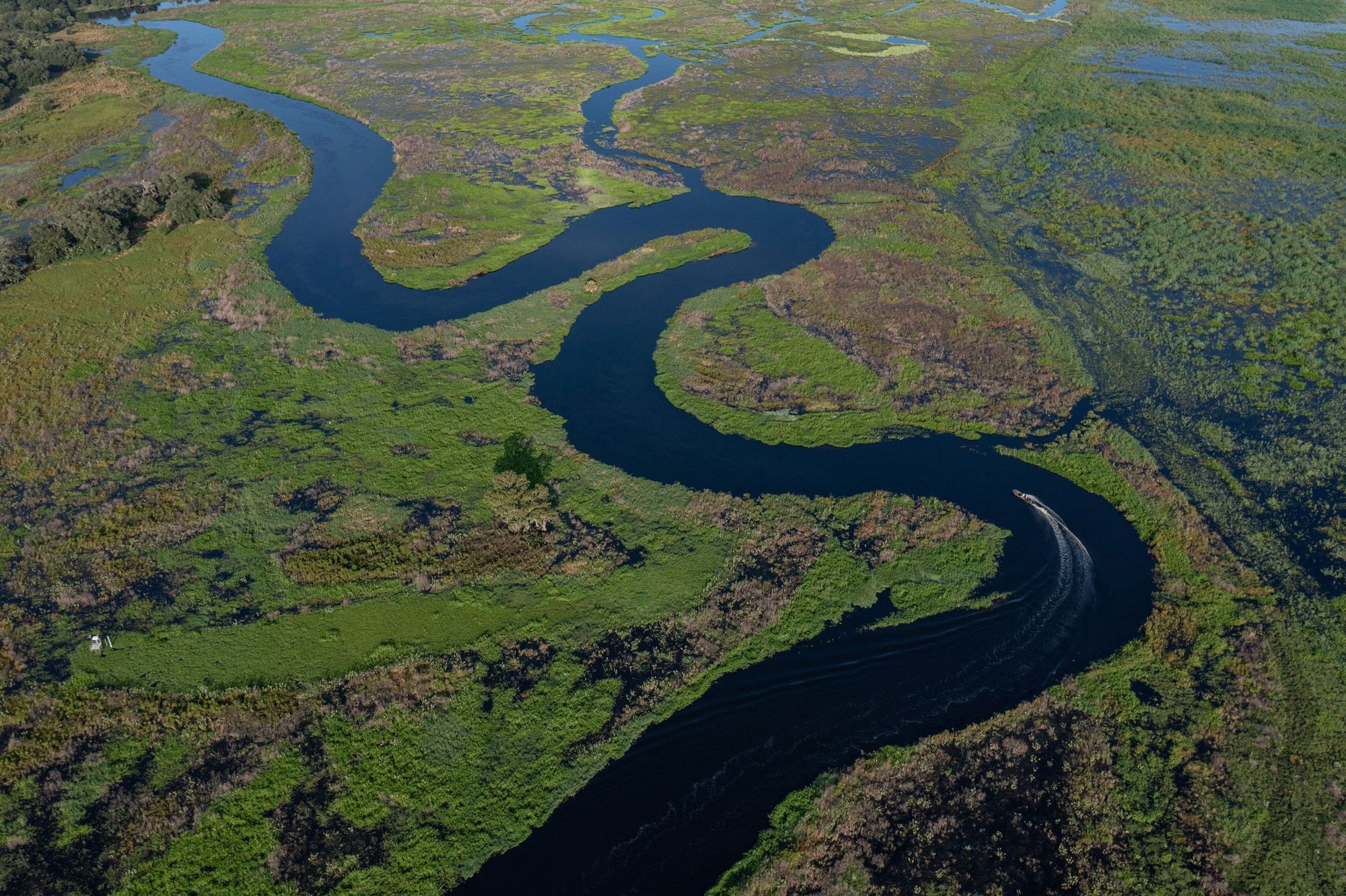
As California recovers from its drought, farmers are intentionally flooding farmlands to restore underground aquifers. Much of this is being driven by the state's 2014 law to regulate groundwater, which mandates that by 2042, an equal amount of groundwater has to be returned to an aquifer as is withdrawn every year. Civil Eats
Lisbon has become the latest European city to bar through-traffic from its city centre. The plan, which will run for a three-month trial period, could also help Lisbon reach its aim of becoming carbon neutral by 2030. It's one of 122 cities in Europe that have pledged to achieve that goal. Bloomberg
Over 100 countries now have a full or partial ban on single-use plastic bags, and it's starting to work. In combination with levies and taxes, numerous countries are seeing significant declines in plastic bag use, and the impact is visible on the ground too. “It’s really, really encouraging to see those numbers trending down." Euro News
Saving the world is cheaper than ruining it
We are approaching the beginning of the end of the fossil age. In 2023 the world will pass a critical turning point in renewable energy, with emissions from power, the largest source of global carbon pollution, expected to fall for the first time. "This could activate a tipping point in perceptions about our ability to deal with climate change." BBC

The head of the IEA, Faith Birol, says clean energy is moving faster than almost anyone realises. Solar generation, for example, grew by 24% in 2022, making it the fastest-growing electricity source for 18 years straight. Over the past two years, the global deployment of solar panels has been fast enough to align fully with the IEA’s ambitious pathway to net zero emissions by 2050. FT
Amazing what can change in less than a year. The US is almost on track to hit its Paris targets. Since the passage of the IRA eight months ago, $150 billion has been announced for utility-scale energy, and if the grid evolves fast enough, enough solar and wind will be added to power 100 million homes by 2030. “A couple years back, you would not see this situation coming at all." Canary
Nobody wants to be left standing when the music stops. Two of the United States' largest utility companies are now considering selling parts of their fossil gas pipelines, as estimates show that as much as $180 billion of gas infrastructure might become stranded as a result of the clean energy transition. WSJ
The North Sea is set to become Europe's green power engine: nine countries are coordinating the delivery of 120 GW of offshore wind in the North Sea by 2030 and at least 300 GW by 2050. To put this in perspective, Europe installed 16GW of wind power in 2022. Guardian
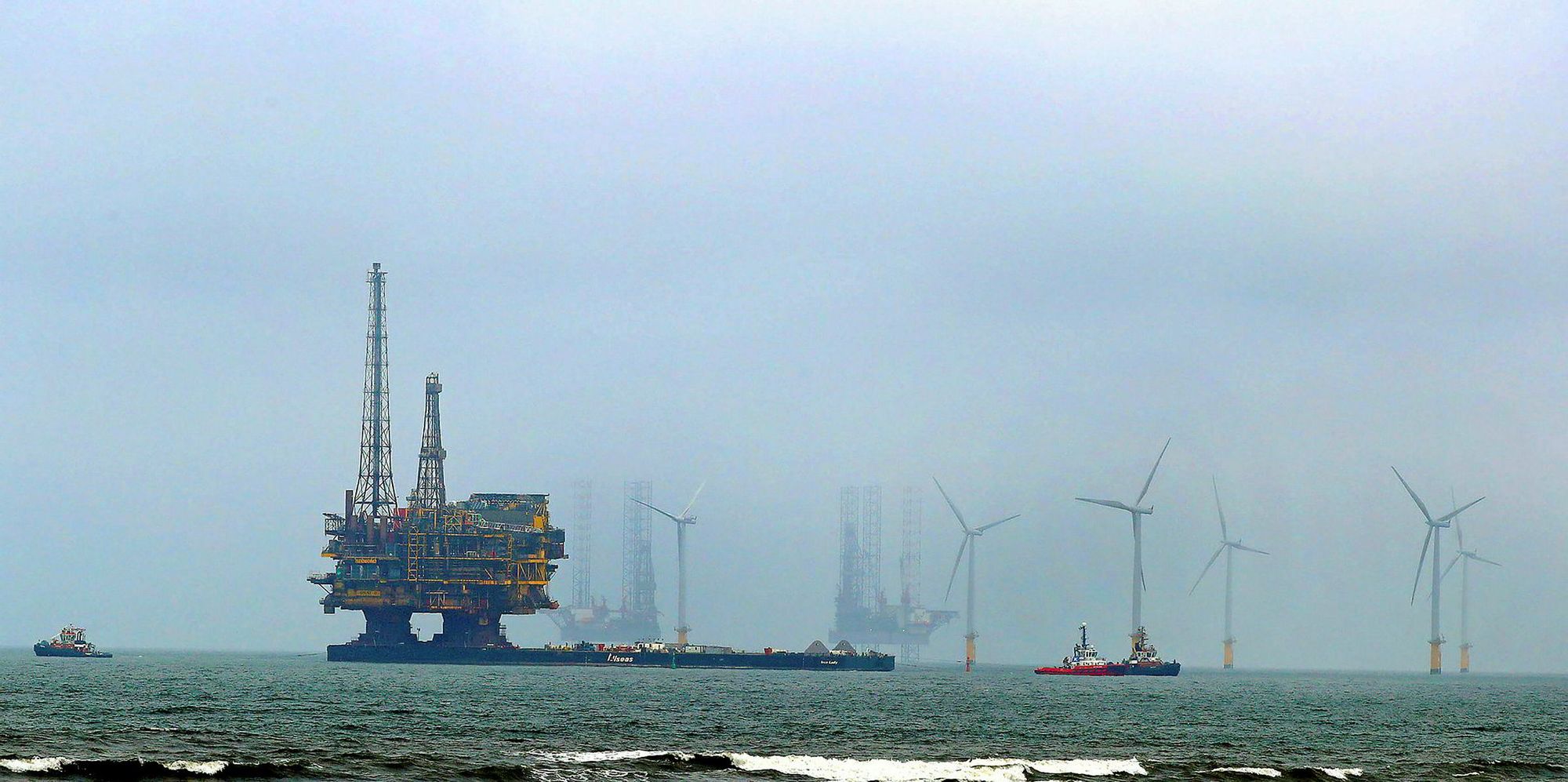
China is aiming to add 160 GW of new solar and wind capacity this year, up from 125 GW in 2022, which was already a record. That's two and a half times more than was added in 2018. What will this look like five years from now? PV Tech
Germany has approved a bill banning new oil and gas heating systems starting from the beginning of next year. The bill stipulates that any heating system installed in new or old buildings after 1st January 2024 must be 65% based on renewable energy. Exemptions will be made for people on low incomes. FT
In this week's "make transmission sexy" news, approval has been given to a 1,178-km line capable of delivering 3 GW of power from Wyoming, from what will be North America's largest onshore wind farm, to Arizona, Nevada and California. It took nearly two decades to negotiate. Canary
BYD, the world's largest EV maker, just unveiled new electric and hybrid models at an auto show in Shanghai. Among them is the Seagull, which has a 300-km range, charges from 30% to 80% in half an hour, and retails for $11,450. No other car maker in the world offers anything remotely like this. Gizmodo

The real threat to oil-rich nations is not green deals in the West, but China's car market. Sales of petrol and diesel cars fell by 20% in February 2023 compared to a year earlier, while sales of EVs reached 32% of the market. “China’s demand for oil is suddenly going to start falling. Half of China's total car fleet could be electric by 2030." Telegraph
Some good news from our own backyard. Electric vehicle sales in Australia have overtaken petrol-driven vehicles in the medium-sized car category for the first time. That happened quick. “The shift is on." Guardian
EV sales in the US will break more than 1 million by the end of this year. That's slower than expected, but the good news is that the EPA just unveiled some of the world’s most aggressive rules on clean transportation, in an effort to halve transport emissions and ensure that two-thirds of new cars, SUVs, and pickups sold by 2032 will be electric. Heatmap
In the first three months of this year, Europe's best-selling car (not just electric car, but best-selling car overall) was the Model Y. If you're wondering why Tesla's valuation is so high, these graphs might help. Four million in cumulative sales and counting, and some suspiciously exponential-looking curves. Clean Technica

Indistinguishable from magic
Geologists from Utrecht, London and Granada have found the first direct proof of the largest mega-flood known to have occurred on Earth. It took place six million years ago, when water flowed over a barrier separating what were then isolated basins in the western and eastern Mediterranean Sea (whatever you do, don't say "two by two"). Utrecht
Say hello to a new job: prompt engineer, or AI-whisperer, people who coax AI to produce better results and help companies train their workforce to harness the tools. “You’ll often find prompt engineers come from a history, philosophy, or English language background, because it’s wordplay." Hope for liberal arts grads? Bloomberg
Meanwhile, ChatGPT is horrified by the copywriting tasks humanity is setting for it, and it has a message for us all.
Two big physics stories out of China. The first is a $300 million plan to built the world's largest underwater neutrino telescope, designed to uncover the origin of cosmic radiation. The second is news that the China National Space Agency has successfully performed the first-ever orbital test of a Stirling Engine, aboard its Tiangong-3 space station.
After decades of research, scientists have dramatically improved the resolution of MRI scans. Coinciding with the 50th anniversary of the first MRI, researchers generated scans of a mouse brain with a single voxel (think cubic pixel) measuring five microns. That’s 64 million times smaller than today's standard MRI voxel. Duke
Spanish surgeons have successfully performed the world’s first robotic lung transplant. Traditional transplantations require a patient’s chest to be cut open, but now, breaking the patient’s ribs is no longer necessary. "We believe it is a technique that will improve patients' life quality, the post-surgery period, and reduce pain." Euro News
Celebrimbor, eat your heart out. A team of engineers from NASA and Ohio State have developed a new alloy for 3D printing called GRX-810 that can withstand temperatures up to 1,090 °C and is twice as strong, twice as resistant to oxidation, and over 1,000 times more durable than existing superalloys. "This may well be one of the most successful technology patents NASA has ever produced.”
Neuroscientists have identified a previously-unknown region of the brain called the somato-cognitive action network. Their findings suggest there's a link between planning, thoughts and motivations, and actual movements and physiological reactions such as sweating or heart rate, providing an additional neuroanatomical explanation for why "body" and "mind" aren't separate or separable. Reuters
And finally, a little bit of future shock in the form of a vertiport (we didn't know it was a thing either). A British architecture studio just unveiled this concept for a terminal in Dubai that will accommodate vertical landing and take-off for air taxis, located next to the airport and linked to existing transportation services. Dezeen

The information highway is still super
A beautiful ode to the act of pilgrimage, by essayist Lisa Wells. The road brings many revelations, including the concept of the "numinous stranger" and how every encounter is an opportunity to build rapport. People are good, everyone has something to give, and trust is the foundation of peace. Along the way, the author meets an extraordinary character, who explains that "shrouding myself in the shadow of my insignificance in order to arrive wherever the holy spirit directs me—is kind of the thing of it.” Harpers
This is fun. How would you respond to the invention of fire? Everyone is saying it's the most important technological breakthrough of our time, but there seem to be two reactions. Some are incredibly excited, others are extremely concerned. "You slap your cousin in the face. What the hell is he thinking? This 'invention' of 'on-demand fire' is wrong. It’s disgusting. It is trying to play god." Atlas of Wonders and Monsters
Rhythm is much more than a component of music. It connects us to the world. It plays a role in listening, in language, in understanding speech in noisy places, in walking, and in our feelings toward one another. Indeed, the universality of rhythm across human cultures is a strong argument for the existence of biological processes governing its perception and production and perhaps even, its role as the basis for consciousness itself. MIT Press
Apparently figure skating is on the cusp of a long-overdue revolution. "Over and over, they practiced a Fred Astaire-style dip until it was easy. Cheek to cheek, then far apart with just a single push, the pair forged a new routine. From the way they moved in perfect harmony, you’d never guess that they had never competed together. They looked every bit the pros they were. But there was one unusual thing about them: Both were women." Slate
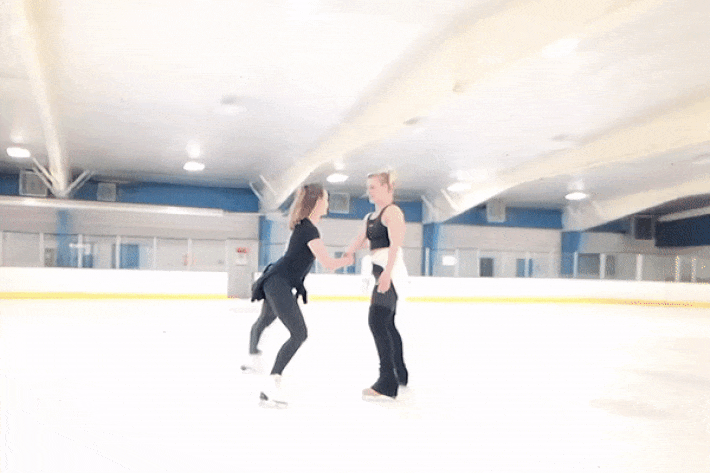
Humankind
The Star Sailor
Meet Nora Al Matrooshi, a 30-year-old mechanical engineer from the United Arab Emirates who is the first female Emirati astronaut, and hopes to join an international league of only 65 women who have been in space.
Nora comes from a family of sailors on her mother’s side, and she is quick to point out that the word "astronaut" is derived from two Greek words: those for "star" and "sailor."
She was a curious child, wired for adventure, and when she was five, her kindergarten teacher sat her class under a black tent, wearing their handmade astronaut helmets, and asked them to imagine they were on a rocket ship headed to the moon. Nora’s imagination was captured, and she decided in that moment to become an astronaut so she could see what the surface of the moon was like for herself.
Despite there being no space program in her country at the time and few female role models, she was driven by the power of childhood possibilities. Even as she grew up and realised the odds were stacked against her, Nora refused to let go of her dream. After excelling in school, she chose to study mechanical engineering at UAE University because they had an internship program with NASA.
Nora worked as an engineer in different fields for years, until the opportunity she’d been preparing for finally arrived. In 2014, the UAE established its Space Agency and in 2018 recruitment began for the first batch of Emirati astronauts to fly to the International Space Station.
Although Nora missed out on the first round, applications for a second batch opened less than a year later, and in April 2021, she was one of two astronauts selected to train with “NASA Astronaut Group 23” at the Johnson Space Centre in Texas so she can one day work as an international mission specialist.
Although she is yet to complete her first mission in space, Nora’s making the most of her time on earth inspiring young women around the world and reinvigorating humanity’s hunger for exploration and mystery-solving.
“If I can do it then you can do it too. And if no one has done it yet, then you just go ahead and be the first because if you have the ambition and drive you will find opportunities everywhere at any time.”
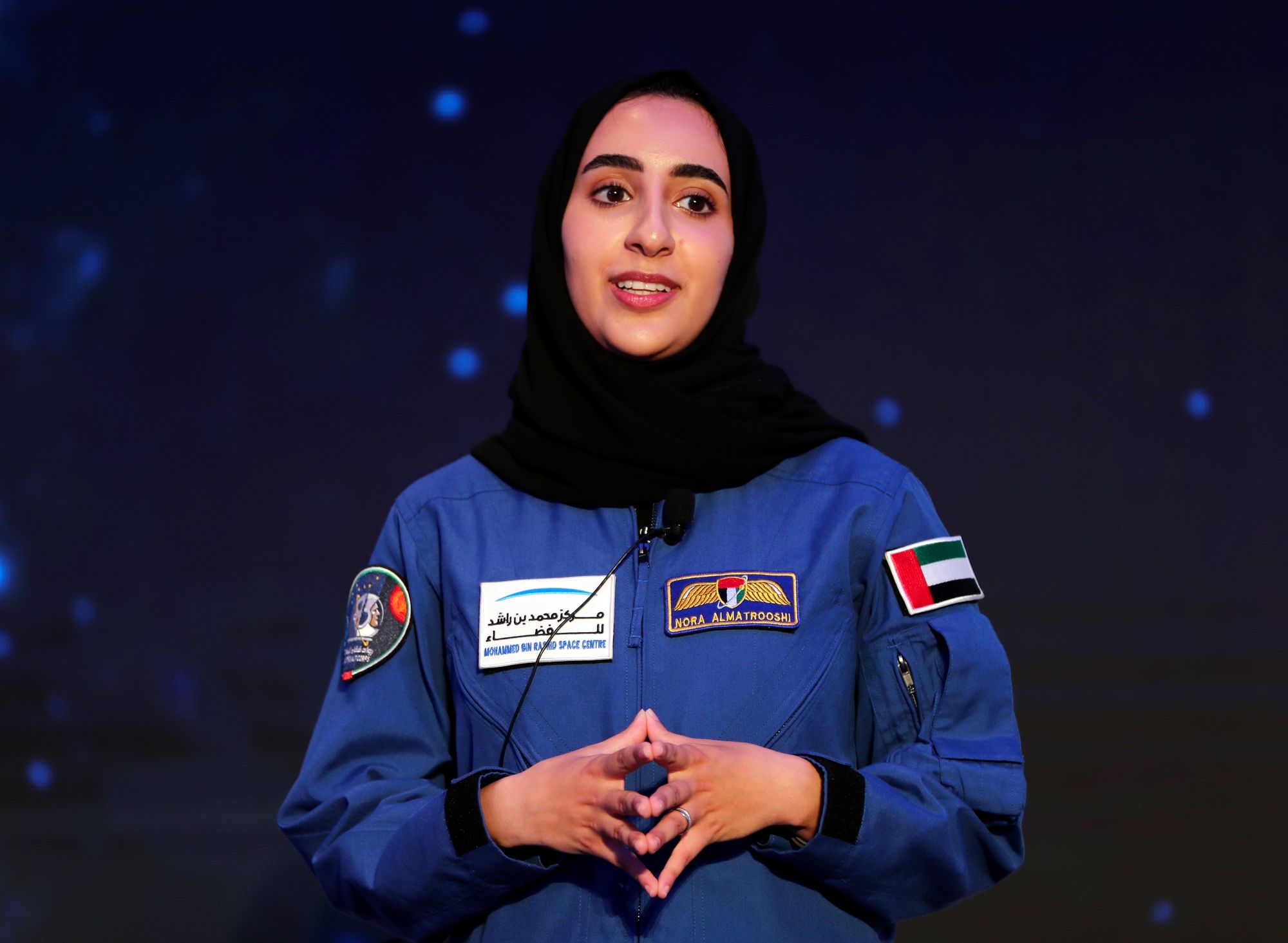
That's it for this edition—thanks for reading. We'll see you next week.
With love,
Gus, Amy and the rest of the team






